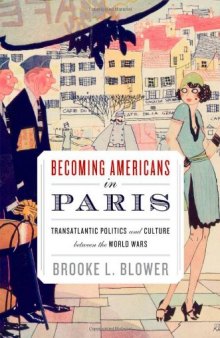 جزییات کتاب
جزییات کتاب
Americans often look back on Paris between the world wars as a charming escape from the enduring inequalities and reactionary politics of the United States. In this bold and original study, Brooke Blower shows that nothing could be further from the truth. She reveals the breadth of American activities in the capital, the lessons visitors drew from their stay, and the passionate responses they elicited from others. For many sojourners-not just for the most famous expatriate artists and writers- Paris served as an important crossroads, a place where Americans reimagined their position in the world and grappled with what it meant to be American in the new century, even as they came up against conflicting interpretations of American power by others. Interwar Paris may have been a capital of the arts, notorious for its pleasures, but it was also smoldering with radical and reactionary plots, suffused with noise, filth, and chaos, teeming with immigrants and refugees, communist rioters, fascism admirers, overzealous police, and obnoxious tourists. Sketching Americans' place in this evocative landscape, Blower shows how arrivals were drawn into the capital's battles, both wittingly and unwittingly. Americans in Paris found themselves on the front lines of an emerging culture of political engagements-a transatlantic matrix of causes and connections, which encompassed debates about "Americanization" and "anti-American" protests during the Sacco-Vanzetti affair as well as a host of other international incidents. Blower carefully depicts how these controversies and a backdrop of polarized European politics honed Americans' political stances and sense of national distinctiveness. A model of urban, transnational history, Becoming Americans in Paris offers a nuanced portrait of how Americans helped to shape the cultural politics of interwar Paris, and, at the same time, how Paris helped to shape modern American political culture.



 دانلود کتاب
دانلود کتاب

 جزییات کتاب
جزییات کتاب


 این کتاب رو مطالعه کردید؟ نظر شما چیست؟
این کتاب رو مطالعه کردید؟ نظر شما چیست؟
